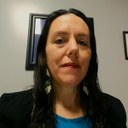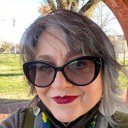Counterstories from the Reservation: Indigenous Americans Speak Back
In Person; Mar. 7-Mar. 9
Facilitation Team:
 |
 |
|---|---|
| Heather N. Hill | Kimberly Wieser- Weryackwe |
Abstract: In Elizabeth Johnston Ambrose’s “Using Rhetorical Analysis and Trauma-Informed Pedagogy,” she argues for “the powerful ideological role that story telling plays” in the healing process of those who have suffered trauma. It is beneficial, she argues, to “become active participants in disrupting the narrative monopoly so long held by the oppressors” (p. 45). With that in mind, and with Aja Martinez’s (2020) Counterstory: The Rhetoric and Writing of Critical Race Theory and Condon and Faison’s (2022) Counterstories from the Writing Center as models, this workshop will gather Indigenous people, scholars of Indigenous rhetorics, and anyone interested in counterstory methodology to participate in what will eventually become an edited collection of counterstories from the reservation that speak back to the dominant narrative told about indigenous peoples in both the academy and other professional settings.
What Draft Deliverable will be Presented at the Conference Showcase? We will present an annotated bibliography of counterstory work and applicable Indigenous rhetorics. We will also present our CFP for the edited collection and working synopsis of the book with the chapter descriptions thus far.
Who Should Apply to Participate? We are particularly looking for Indigenous scholars or people working in Indigenous rhetorics for the edited collection, but for the purposes of this conference, we are open to anyone who is working on or who would like to learn more about counterstory methodology. Non-Native participants who would like to learn from Indigenous counterstories will be encouraged to explore Killers of the Flower Moon, the Indigenous experiences of Kentucky and the Watson, or the counterstories told in the workshop by BIPOC participants. This helps us all work toward reconcilation and healing.
What Do Participants Need to Prepare? No preparation is required, but if participants are interested, it might be helpful to read Aja Martinez (2020) Counterstory: The Rhetoric and Writing of Critical Race Theory and/or Wonderful Faison and Frankie Condon’s Counterstories from the Writing Center.
What Happens After the Conference? After the conference, we will send out the CFP and begin collecting proposals. The facilitators/editors will also begin working on the book proposal.
